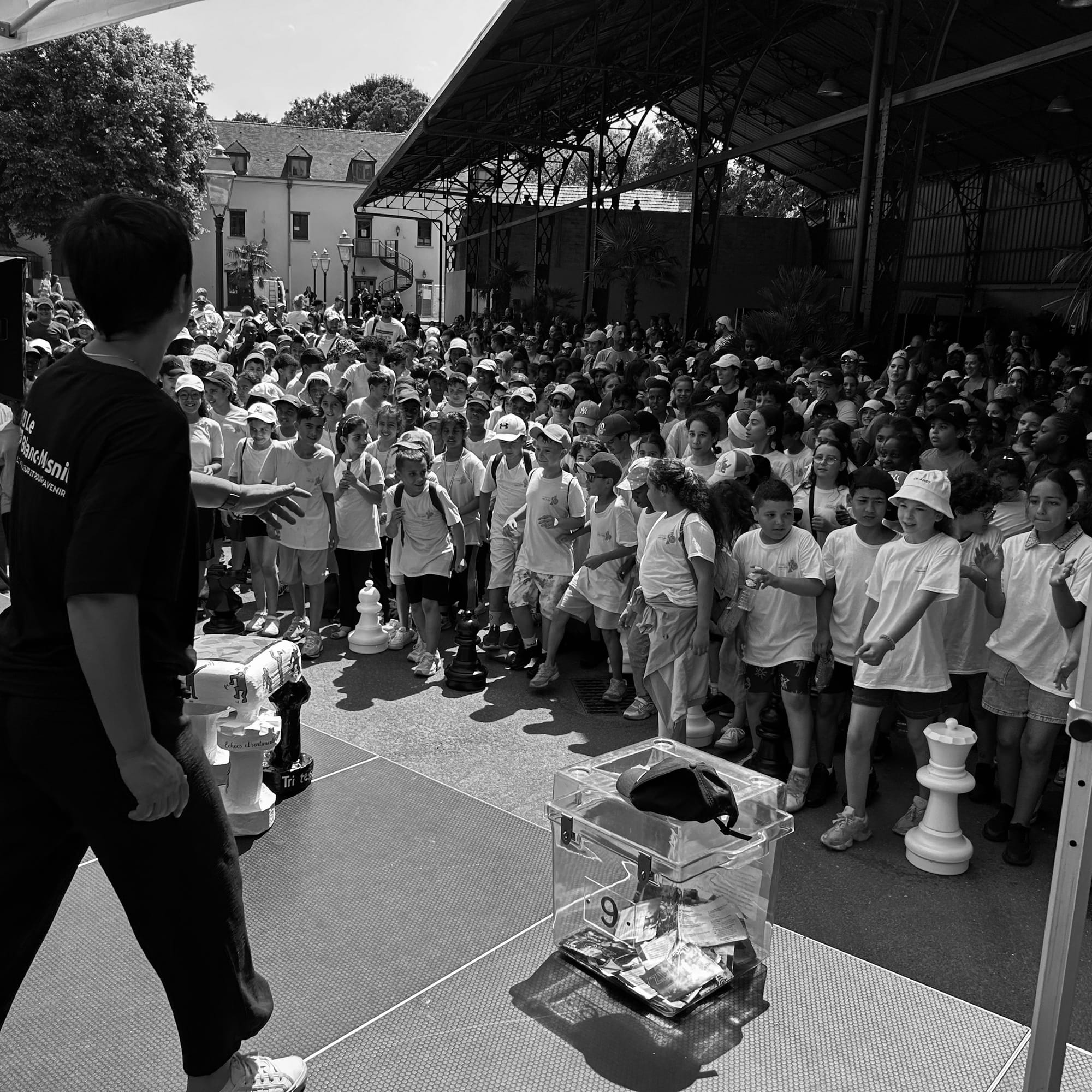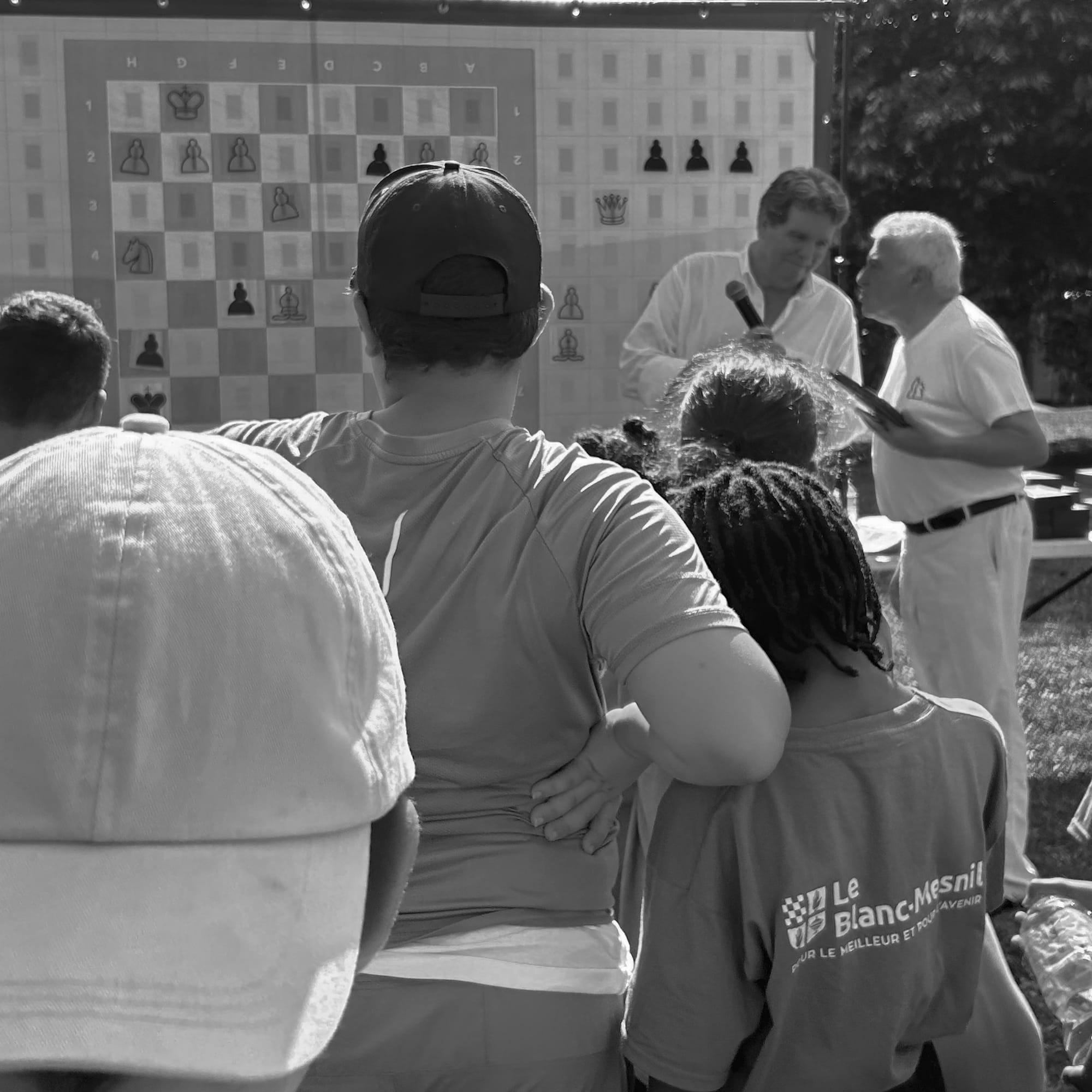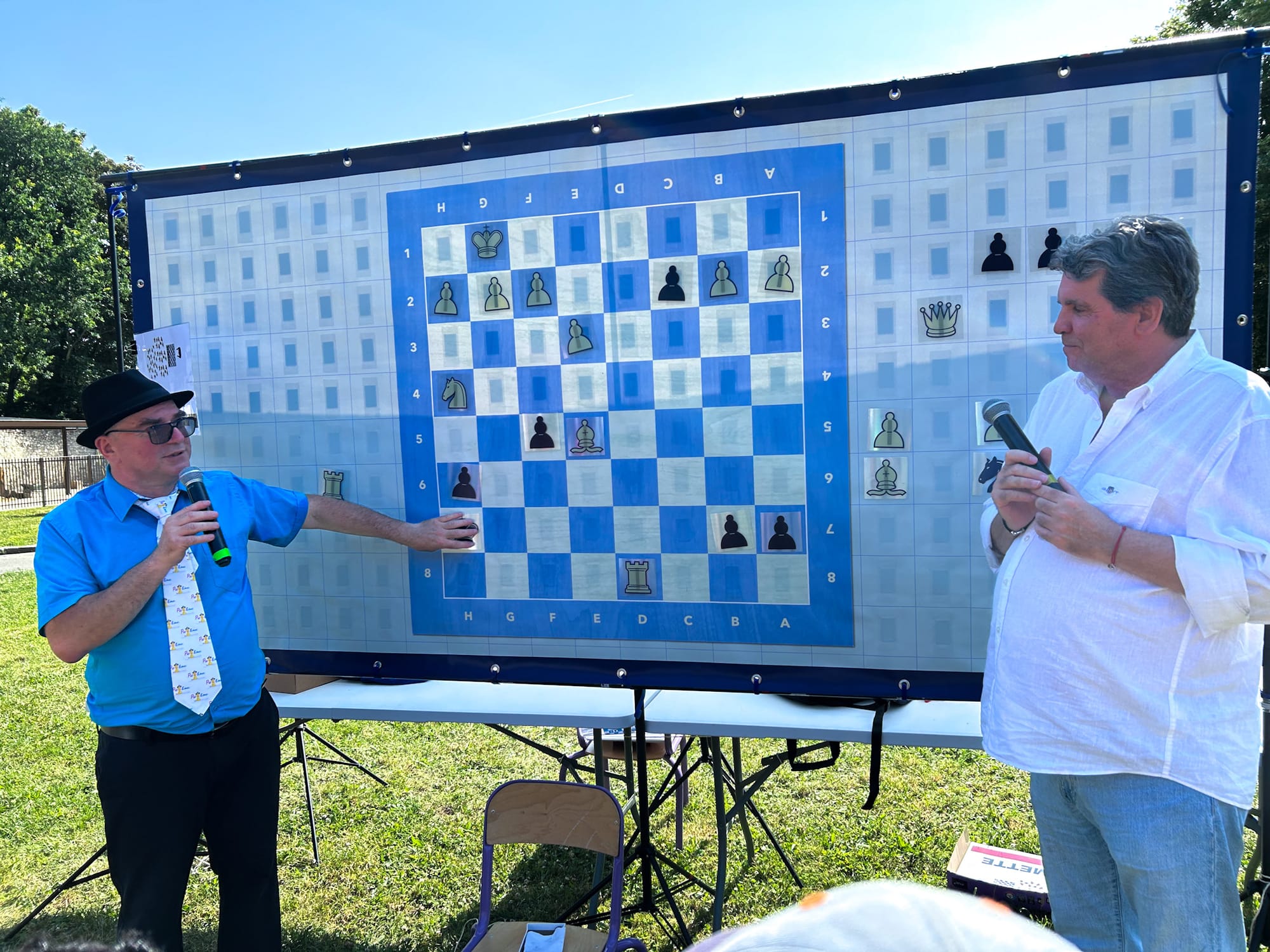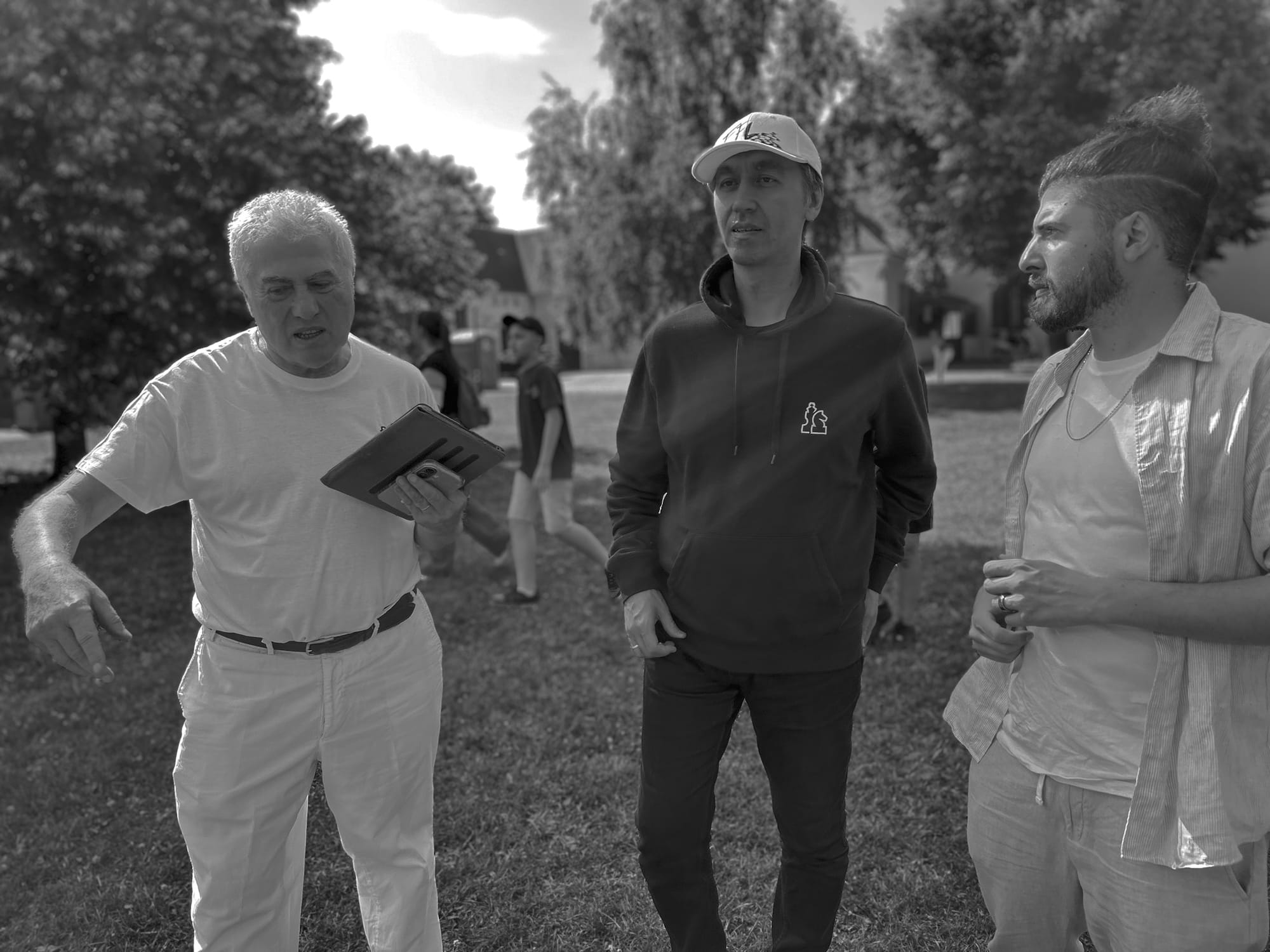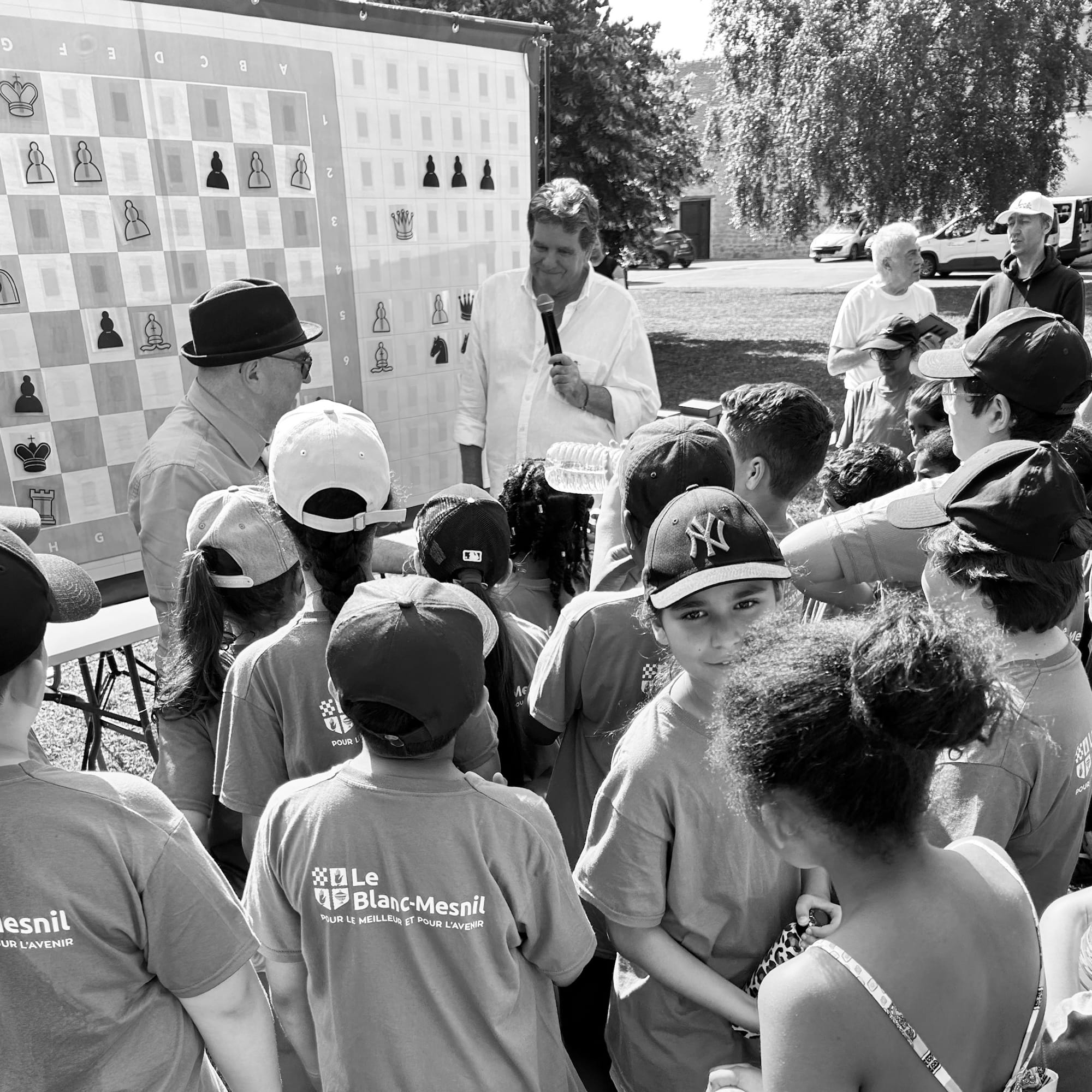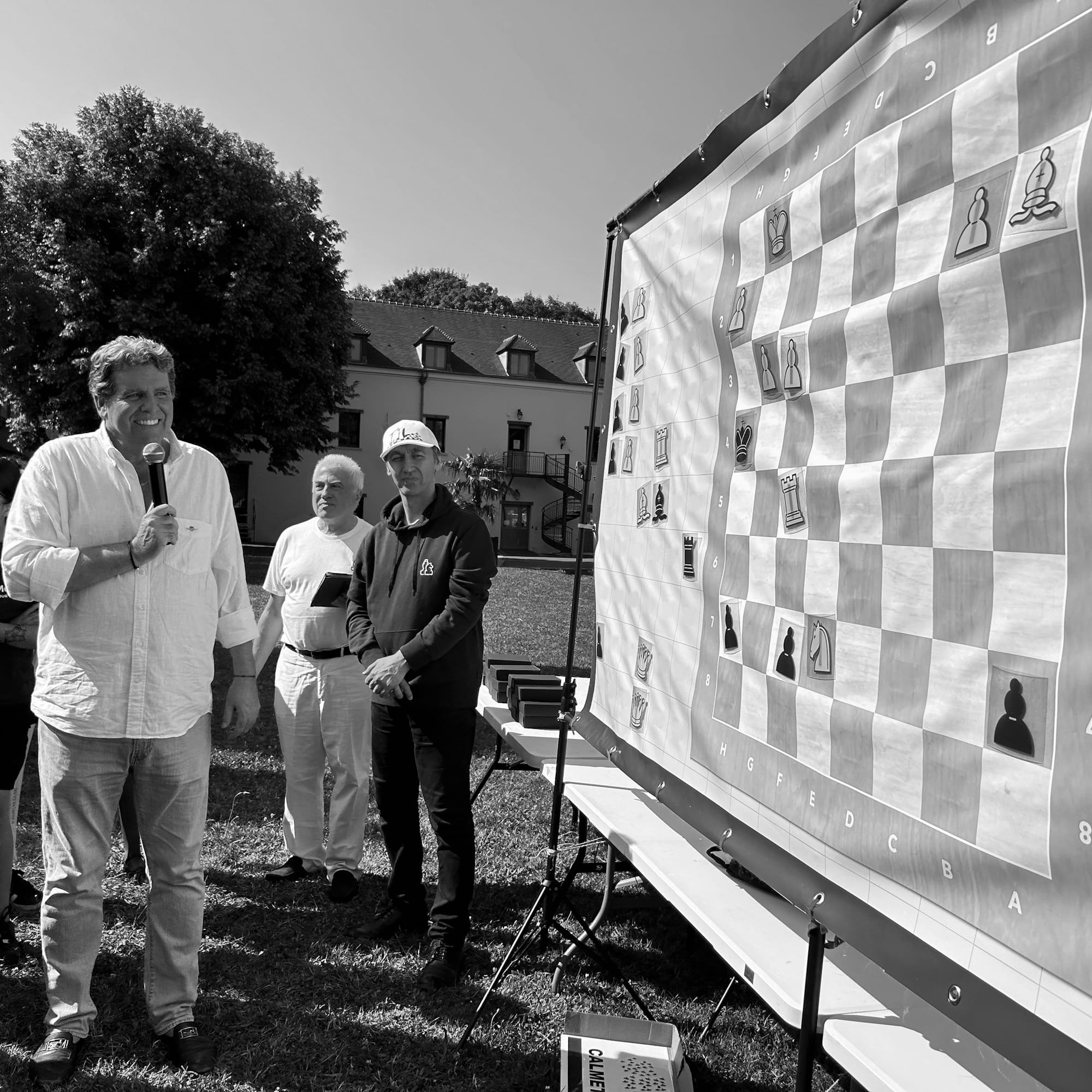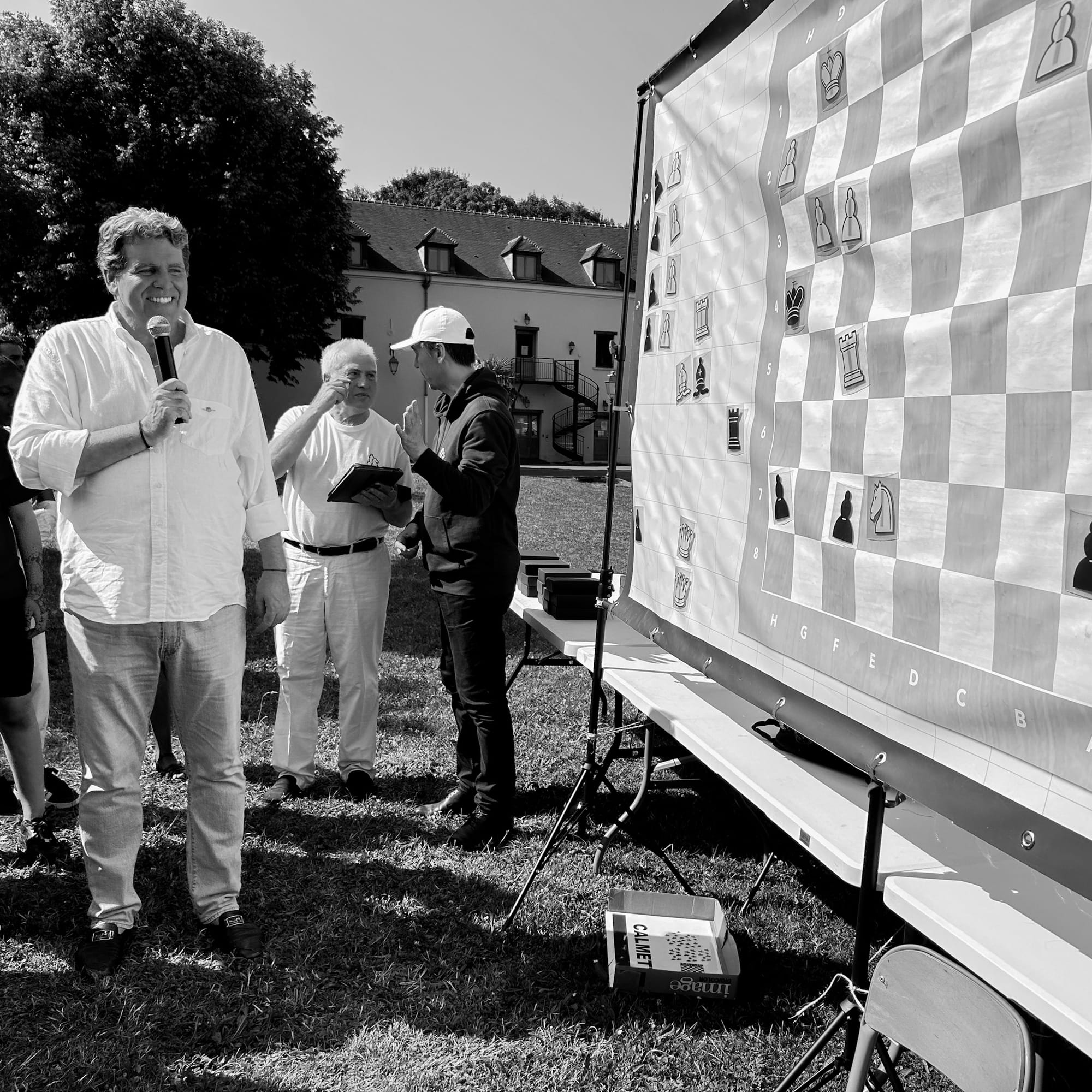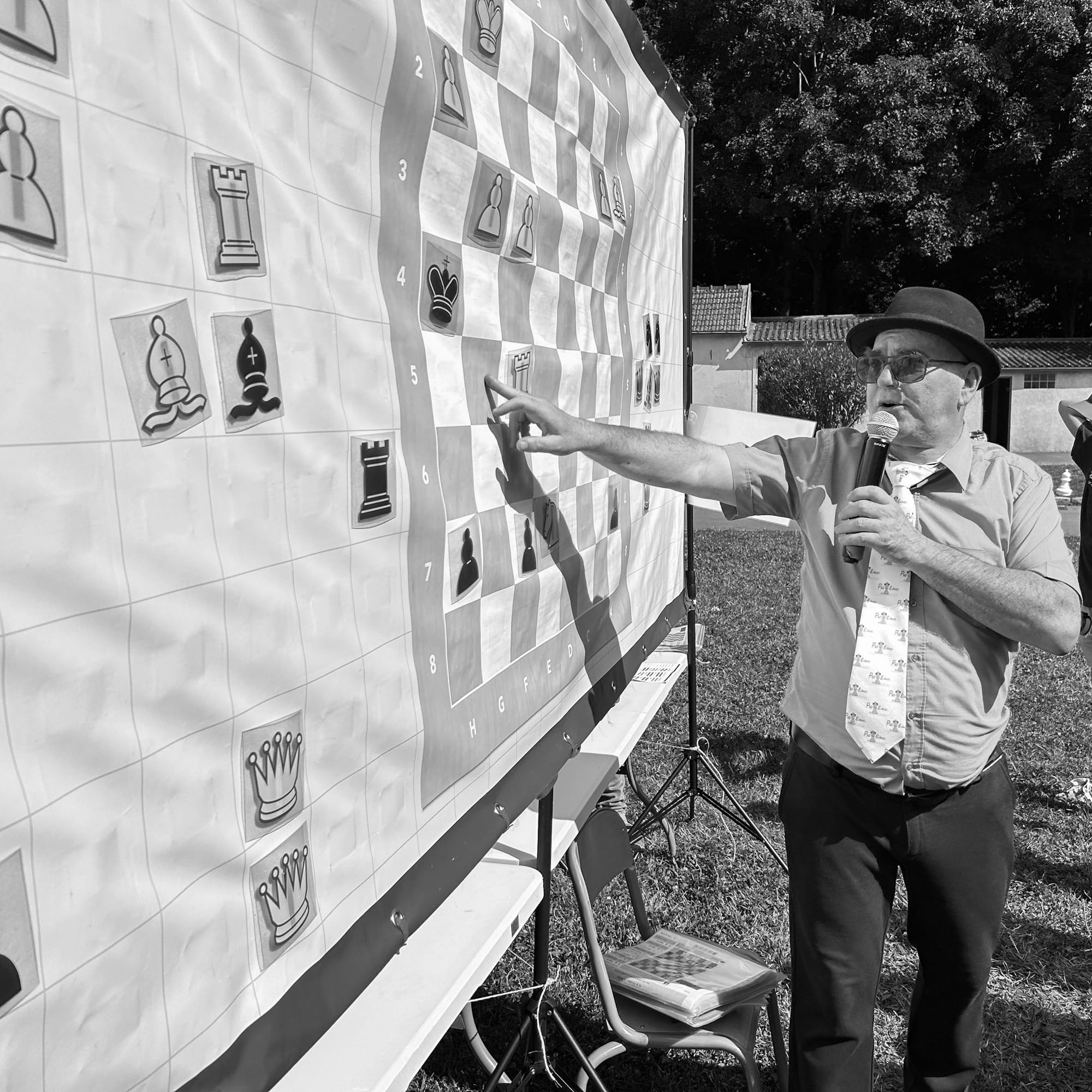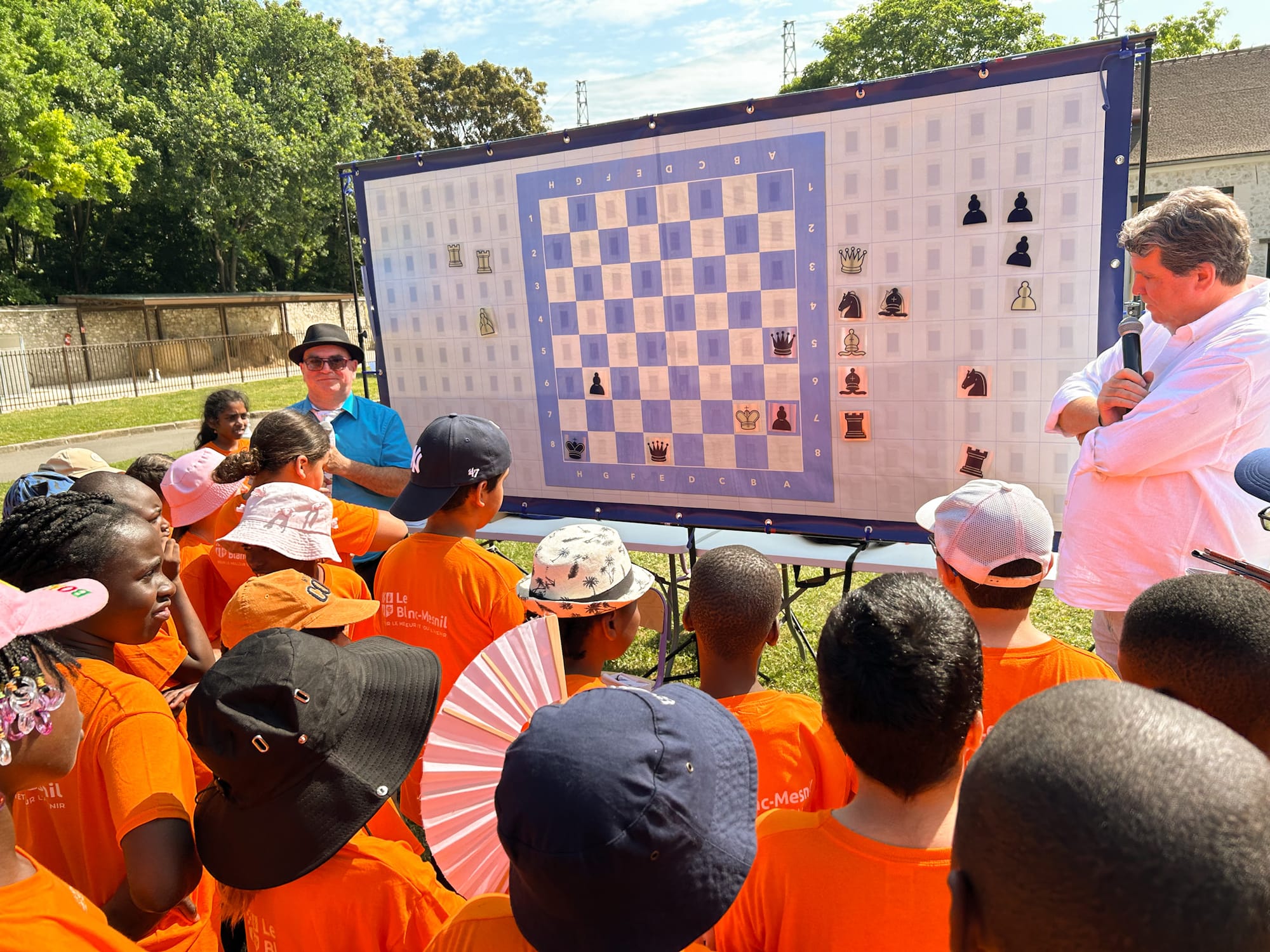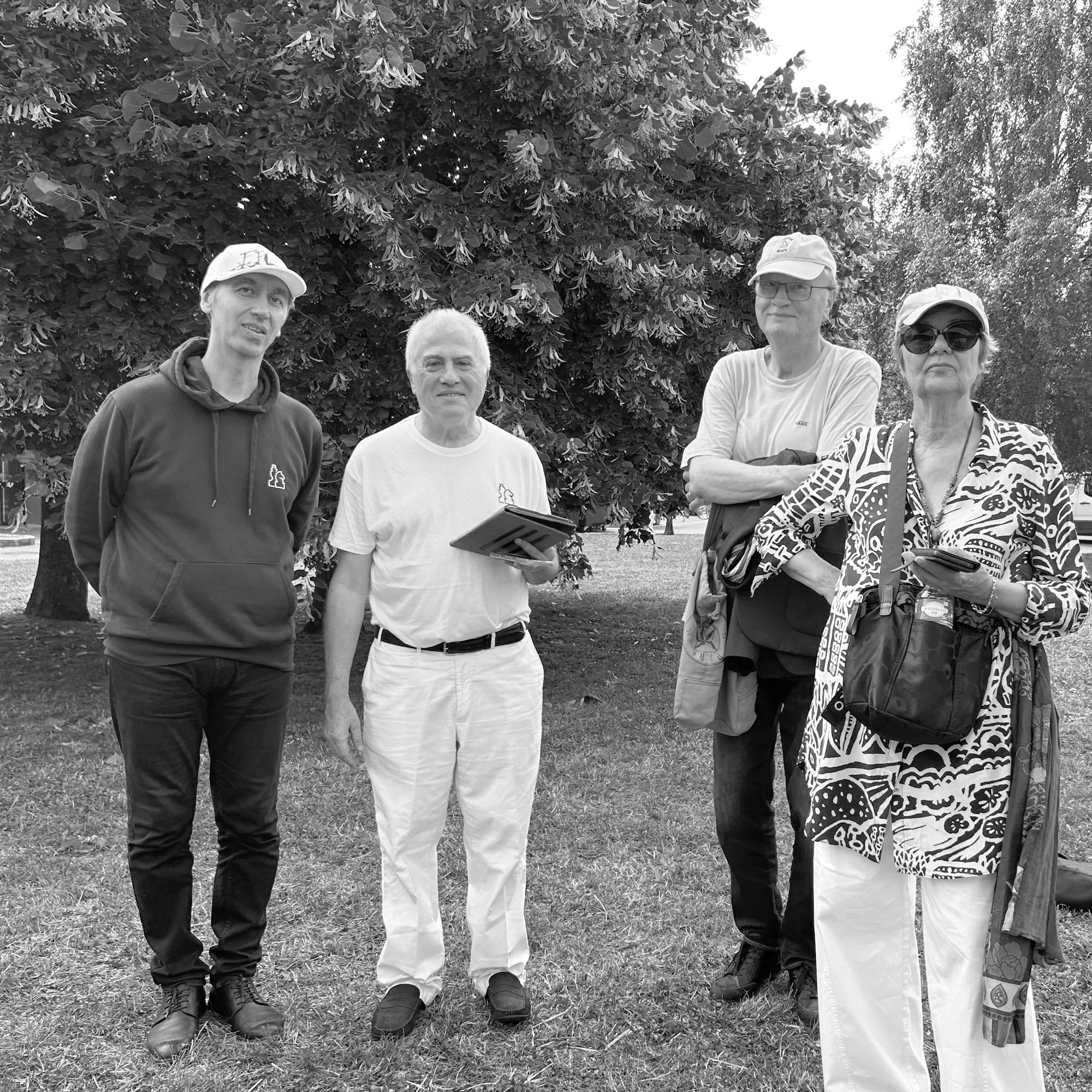Chess intelligence
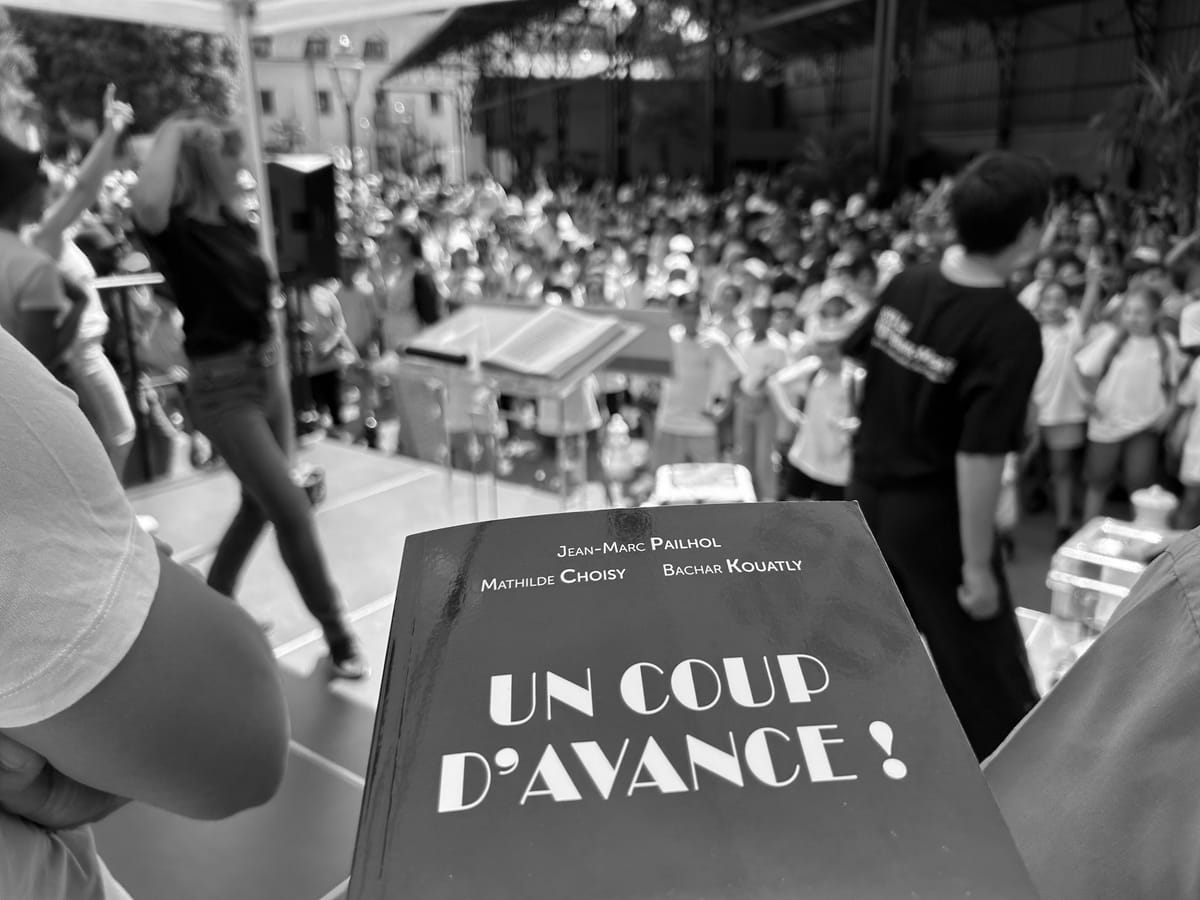
What is chess? What does it mean to be a person who plays chess - a chess player ?
I guess there are no less possible definitions as for the art and on the meaning of being an artist. Is it one of the common points that unites chess with art? Or this impossibility to come up with a clear definition is something that unify all the practices that have managed to stand the test of time presenting its ancient profound heritage in the modern hectic days?
Nevertheless, I already hear the arguing voices - please don't do an ethereal mystery out of a mondain game. You don’t need anything, but eyes to say what chess is and it’s obvious what does it mean to be a chess player.
Oh, really ? Please, let me know.
For me chess is a magic carpet. And a chess player - is a person who by the means of continuous training -
- Learns to navigate it through the vastness of life;
- Develops a chess intelligence and then applies it in the various fields of occupations;
- Acquires a certain set of ethical rules, such as to prepare before the game, reflect on the game, to consider candidate moves before making a decision, to name a few. To respect the person with whom you hold the conversation (over the board) and the environment. (I couldn’t continue without mentioning these parts of the chess ethics)
Chess was the first language I’ve started to learn. Now I’m studying in university to become a linguist, though the theory of “linguistic determinism” is an arguable one, to me it seems very explanatory and insightful. I used to consider chess as « glasses » through which I see the world.
Just in case, a bit (beat!) of context and terminology to make it more clear (hopefully) why do I relate chess and language:
The key idea: Linguistic determinism is the concept that language and its structures limit and determine human knowledge or thought, as well as thought processes such as categorization, memory, and perception. I’m really sorry for breaking the rules and quoting from Wikipedia… Linguistic determinism - Wikipedia Fortunately in the text for my blog I’m not obliged to look for the source itself and can be satisfied with referring to an anonymous summary of a body of works with further links inside…)
To familiarise oneself in a very friendly manner (without a rigidness of the dedicated scientific researches) with this concept, please have a look at the book “Through the language glass”, by Guy Deutscher or glimpse into this review of the book Through the Language Glass by Guy Deutscher – review
To sum up, for me chess was the first language that shaped my perceptions of the word ;
I thought that I interacted with the word “through the chess glasses”.
However, as a result of my latest academic research on the crisis of the educational system and the mental health crisis (both happening world-wide), I’ve found out that one of the reasons of the crises and the point that both crises have in common is the high estimation of the importance of logic-mathematical type of intelligence, whereas other types of intelligences are far from enjoying appreciation. As a result, people for whom it’s more organic to apply other types of intelligences to learn, to process the information, and find solutions feel that there's something wrong with them and strain oneself to acquire the “best” type intelligence.
Not going deeper in the scientific references, I’ll mention that this talk by an acknowledged scientist and educator addresses these questions and at the same time is really enjoyable to listen :) Sir Ken Robinson: Do schools kill creativity? | TED Talk
Oh, so many sophisticated questions! But what is “intelligence”? From Latin “intelligio” - to understand…
Chess also provides us with certain techniques that help us to read and understand the position on the board and can be applied to try to understand a situation in life. At least, it’s so from my experience… Of a person with the bodily-kinesthetic type of intelligence as the dominant one :)
I’ve realised that chess was never a kind of glasses for me (although I admit that I tend to see the world in black and white, but it's another story). Thanks to the intensive chess training I’ve developed a chess specific kind of intelligence. And the difference between glasses and intelligence is clear: glasses help to see the world (I personally totally relate to the characters of this parable Blind men and an elephant - Wikipedia) and intelligence goes beyond the step of “seeing” - it’s a way a person approaches problems, tries to understand and solve them.
Fortunately, the world offers us not only an endless amount of challenges, but also nudges us to explore different types of our own, human intelligence! From my perspective, it doesn’t matter that computers calculate more precisely and can generate more smooth texts then I do in a shorter amount of time… As long as I use writing in order to explore, to understand and grow.
I’m just wondering how the act of “text generation” (it is how Large Language Models learn and work, don’t they? ) started to be considered as a type of intelligence, Her Majesty Artificial Intelligence, if this process contradicts the definition of intelligence?
Probably the game of chess will help the upcoming generation to acquire the set of skills, such as critical thinking and anticipation, for example, needed to survive and hopefully even thrive in the world where it’s becoming ever more challenging to find a firm ground and a secure source of information.
« Chess is a tool » - former president of the French Chess Federation and the head of the project Bashar Kouatly has highlighted this vision (definition of chess? One of many possible definitions…) throughout our conversations and it was in this spirit that the anniversary 10th edition of the Inter-school competitions has taken place.
